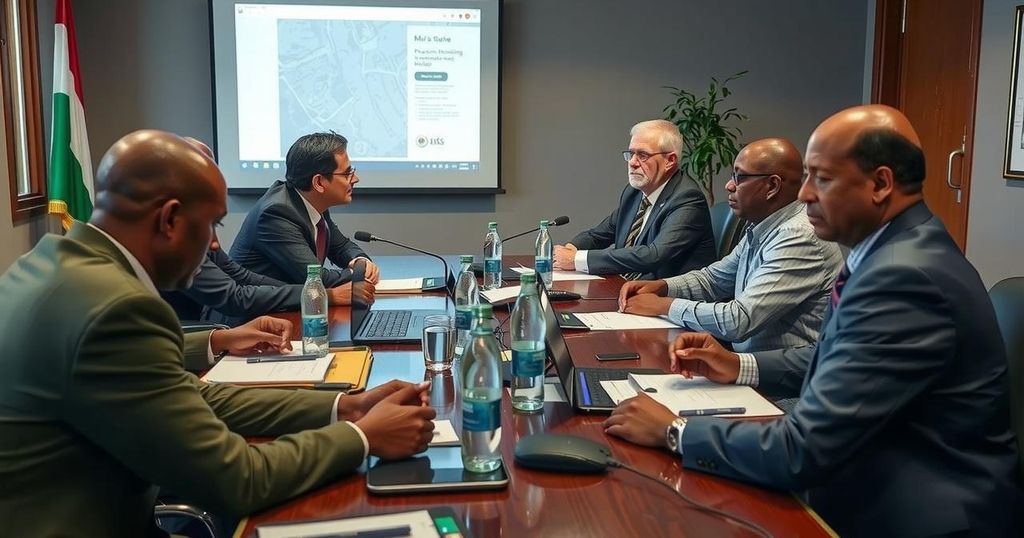USGS and Water Security Initiatives in Namibia and Botswana
The USGS delegation visited Namibia and Botswana from September 10 to 27, 2024, as part of the Ambassador’s Water Experts Program to assess and address water security challenges. Discussions focused on leveraging remote sensing and improving hydrologic monitoring to manage resources more effectively amid severe drought conditions.
During the period from September 10 to 27, 2024, representatives from the United States Geological Survey (USGS) conducted a mission to Namibia and Botswana to address significant water security challenges. This initiative was part of the U.S. Ambassador’s Water Experts Program (AWEP), which is overseen by the Department of the Interior’s International Technical Assistance Program and funded by the Bureau of Oceans and International Environmental and Scientific Affairs of the U.S. State Department. The USGS delegation, led by John Lane, Science Advisor for International Water, and Molly Wood, Chief of the Hydrologic Networks Branch, engaged with various stakeholders within the water management sectors of both nations. These discussions included representatives from government ministries, bulk water suppliers, municipal utilities, multinational water commissions, private consultants, and personnel from the U.S. Embassy. Given the semi-arid to arid climate conditions prevalent in Namibia and Botswana, both countries are currently facing acute drought pressures which are straining their drinking water supplies and other vital water resources for agriculture, mining, and industry. In response, the governments of Namibia and Botswana are actively seeking technical assistance and expertise to enhance their understanding and management of available water resources. The primary focus of the discussions was to explore potential collaborative efforts between USGS and local agencies to: 1. Utilize remote sensing datasets for improved assessments of water availability, 2. Enhance hydrologic monitoring networks to facilitate better access to hydrologic data, thereby informing critical water resource management decisions, and 3. Work together to devise scientific solutions aimed at effectively managing both groundwater and surface water resources in light of the ongoing drought conditions.
The significance of water security is amplified in regions such as Namibia and Botswana, where climatic conditions pose substantial challenges. Semi-arid and arid environments can lead to intensified droughts, putting immense pressure on existing water resources. The collaboration between USGS and local agencies aims to promote a greater understanding of these challenges while also developing sustainable management practices. By leveraging advanced technological methods—such as remote sensing and enhanced data collection—the involved parties hope to create actionable insights that facilitate long-term water resource planning and management.
In summary, the recent engagement between the USGS and agencies within Namibia and Botswana highlights critical water security concerns exacerbated by drought conditions in these semi-arid regions. The collaborative approach aims to utilize advanced technologies to better understand and manage these vital resources sustainably. This partnership underscores the commitment of the U.S. in supporting international efforts to address water security challenges.
Original Source: www.usgs.gov




Post Comment